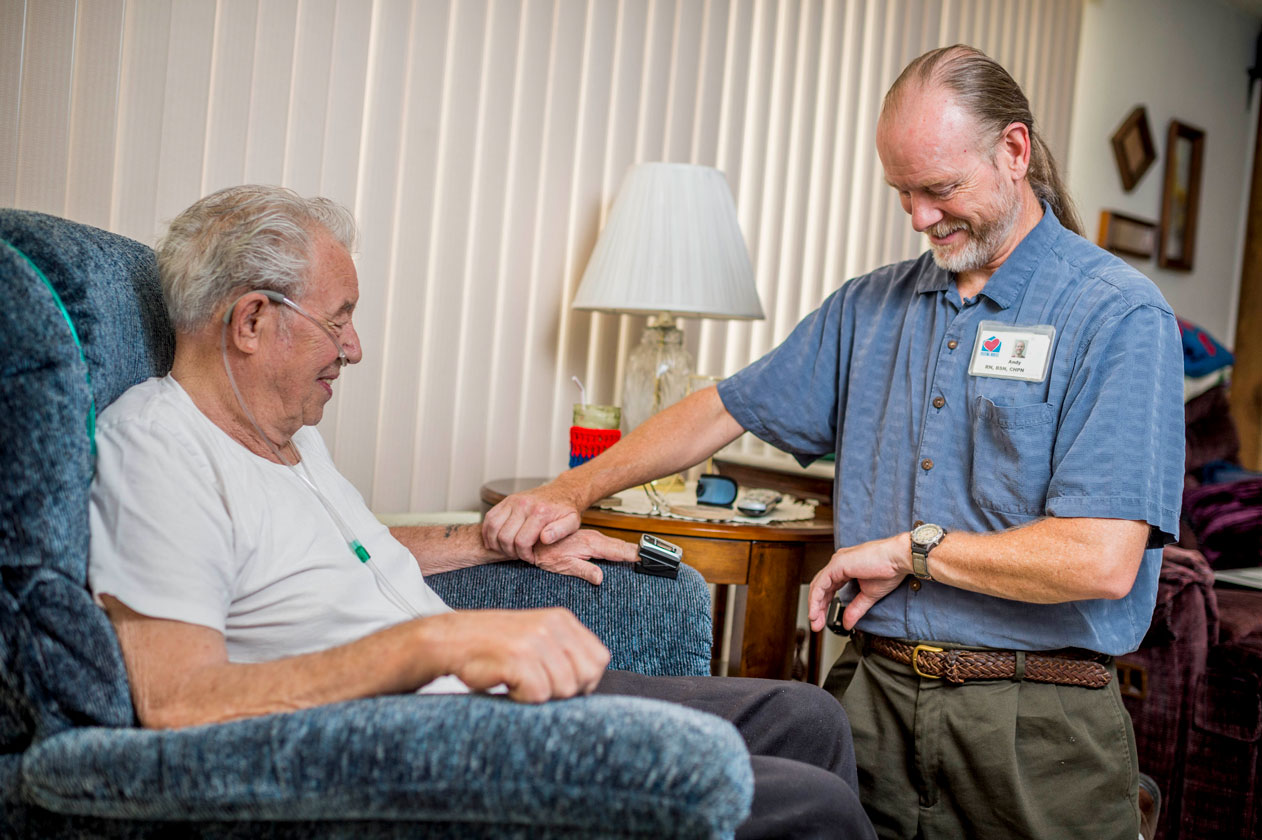
Understanding palliative care and its benefits will help you know when you or a loved one could benefit from this effective type of care. Palliative care is specialized medical care for people living with a serious illness or chronic disease. Though palliative care is used in coordination with hospice care, they are in fact different. This type of care has a specific and important goal: to relieve symptoms, stress and improve the quality of life for both the patient and family. It is provided by a team of dedicated palliative care physicians, nurses, social workers and chaplains. This interdisciplinary team will work closely with your physicians to provide an extra layer of support.
Is palliative care only appropriate at the end-of-life? If I receive palliative care, does that mean I have to give up curative treatments? The answer to both questions is no. Palliative care is for any age and/or any stage of a disease process. It doesn’t matter whether the illness is curable or chronic. Many people believe palliative care is only for those who can’t be cured, but it actually can be provided in conjunction with curative treatments. It is a crucial part of hospice care, but is not exclusively for hospice patients. Palliative care can help with chronic or acute pain, depression, anxiety, shortness of air, nausea and loss of appetite, which are often associated with complex chronic diseases. It is also a resource for anyone living with cancer, ALS, cardiac disease (congestive heart failure), lung disease (chronic obstructive pulmonary disease), kidney failure, Parkinson’s and many more to help improve quality of life.
In addition to improving quality of life and helping control symptoms, palliative care can help people understand their choices of medical treatment options. Pain by itself can be debilitating, and without relief can affect your strength and ability to carry on with regular activities. Over the past decade, palliative care has been one of the fastest growing trends in health care, but also one of the most underutilized by those who could really benefit from it. Increasing awareness and understanding of the benefits of palliative care is an important first step in increasing its utilization by those who could significantly improve their quality of life through this care.
A palliative care consultation can be provided in hospitals, facilities, outpatient clinics and possibly even in your own home under certain situations. We are very fortunate in our community because our local hospital offers both inpatient palliative care consultations and also has an outpatient clinic. If you have any questions, you should contact your primary care physician, and they will be able to assist you. Everyone deserves to live a life free of pain. A palliative care team can greatly assist with this and help you achieve the quality of life you deserve.
Debbie Ahlert-Caffey, RN
Director of Clinical Services
Douglas County Visiting Nurses Association